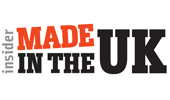
Düsseldorf, Germany
11 November 2024 -
14 November 2024
From 11 to 14 November 2024, our team will be joining other international experts from the medical industry at MEDICA, in Düsseldorf, Germany.
With over 5,300 exhibitors from almost 70 countries and 83,000 visitors MEDICA in Düsseldorf is one of the largest medical B2B trade fairs in the world. A wide range of innovative products and services from the fields of medical imaging, laboratory technology, diagnostics, health IT, mobile health as well as physiotherapy/orthopaedic technology and medical consumables are presented here. The extensive programme of first-class forums, conferences and special shows provides opportunities for interesting presentations and discussions with experts.
This year, our focus is our Multi-Analyte Human Assayed Controls & Serum Indices Quality Controls.
Multi-Analyte Human Assayed Controls are essential tools in clinical laboratories to ensure the accuracy and reliability of diagnostic tests. These controls contain a blend of multiple analytes—such as hormones, proteins, and other biomarkers—mimicking human samples.
They are used to validate and monitor the performance of assays, which are tests designed to measure the presence or concentration of specific substances in a sample. By incorporating a range of analytes, these controls help laboratories simultaneously assess the precision and accuracy of various diagnostic assays under a single test run. This comprehensive approach not only enhances the efficiency of quality control procedures but also ensures consistency in test results, ultimately contributing to better patient care by maintaining high standards in laboratory diagnostics.
Fortress Serum Indices Quality Controls are designed to monitor the ability of an instrument to accurately measure LIH in specimens. This is done through the use of controls which mimic specimens considered as either Lipaemic, icteric, haemolytic or normal using human-based control material. Clinical Laboratories can encounter samples that show significant Lipaemia, Icterus and Haemolysis all of which, if high enough, can cause interference with clinical assays.
The use of serum indices allows a laboratory to critically evaluate the LIH interference level of a sample and to make a decision as to whether or not a result has been potentially compromised resulting in an incorrect result being reported. The laboratory’s quality of reporting can be kept to a high standard by treating LIH indices as another quantitative assay which requires quality control to ensure reproducibility and reliability.
If you'd like to grab a chat with our sales team regarding any of your products or services, be sure to book your meeting slot in advance here:
Request a Meeting
You can find us at Stand E51 - Hall 3
Visit the Medica 2024 website.








